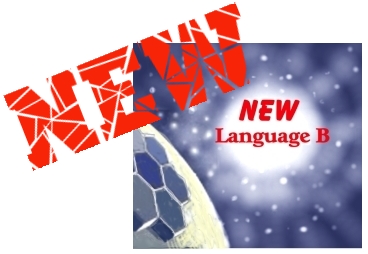WA clarifications
Wednesday 26 November 2014

My attention was drawn to a recently-posted document on the OCC while I was at the Standardisation meeting at Cardiff. This is snappily entitled "Clarifications for language acquisition written assignments (first examinations 2015) (Updated November 2014)", and it is available on the OCC > Diploma Programme > Language Acquisition > English B > FAQ and clarifications.
It is well worth a read since it does indeed clarify, and answers a number of questions that I have heard at workshops. There is nothing radically new in it if you have read the requirements for the new WA procedure as outlined in the Subject Guide (2015), but it does add nuances, and makes certain phrasings in the Guide more specific and exact. You should, of course, download a copy and read it through attentively yourself, but here are a few details that I personally found significant...
layout and Presentation ... this section recommends that, since the WA is to be word-processed, students should make use of the easy availability of fonts and layout. This should be to make the text as easily readable as possible, and demonstrate "a clear understanding of text types". However, students should be reminded that there are no marks available for 'artistic merit', so they should use fonts and layout to encourage clarity, not to show how clever they are.
supervision of the written assignment ... this whole section emphasises the idea of the teacher's role as guide and advisor, not invigilator - check it out. Note in this section ...
'reusing articles already studied in class' ... this is "not acceptable". So, essentially, students have to go out there and find new materials (this presumably applies principally to the SL WA).
bibliography (?) ... there is a clear statement that "It is not necessary to include in-text referencing (for either SL or HL) ... as the written assignment is not considered to be an academic research document". However, it does seem to be recommended "...to include a bibliography at the end of the task..." Personally speaking, this seems a little redundant since bibliographic details are required on the cover sheet anyway - but why not simply do it, especially since the bibliography "...is not included in the word count...".
copying ... do remind your students that "...it is not acceptable to copy large sections of source texts". This very clear statement fits with complaints I have heard from senior WA examiners. What is a 'large section'? I would suggest anything more than a longish phrase or a shortish sentence.
similar texts or tasks ... under the 'old' WA system (to November 2014), teachers were required to ensure that no students chose the same texts and/or tasks. Now, consider the following from page 3 of this Clarifications document: "...it is the teacher’s right to disallow any text and task that they believe to be inappropriate as a written assignment, or that has already been used by other candidates." Note that 'right' does not mean the same as 'duty' or 'obligation' - it should be seen in the context of the teacher's "...duty to ensure, to the best of their professional ability, that there is no plagiarism or collusion." Fair enough - which I interpret to mean that if two students happen to use the same materials for different purposes, fine; but if they obviously are simply borrowing ideas, tell them to go away and think again.
'anglophone' texts at SL ... a clear instruction that the texts that students choose should "...relate to the target country or regions of the language being studied". So, discourage texts about, say, globalisation in general terms, and rather require texts about the effects of globalisation in, say, the UK.
graphic novels at HL ... helpfully, the document specifically says that these works are acceptable (for study under the literature element of HL and therefore as stimuli for the HL WA), provided that they are "fundamentally literary in nature" - which means, in essence, 'sufficiently challenging and sophisticated'.
So there you: edited highlights of a useful and interesting document. As always, I recommend that you read the whole text yourself.

